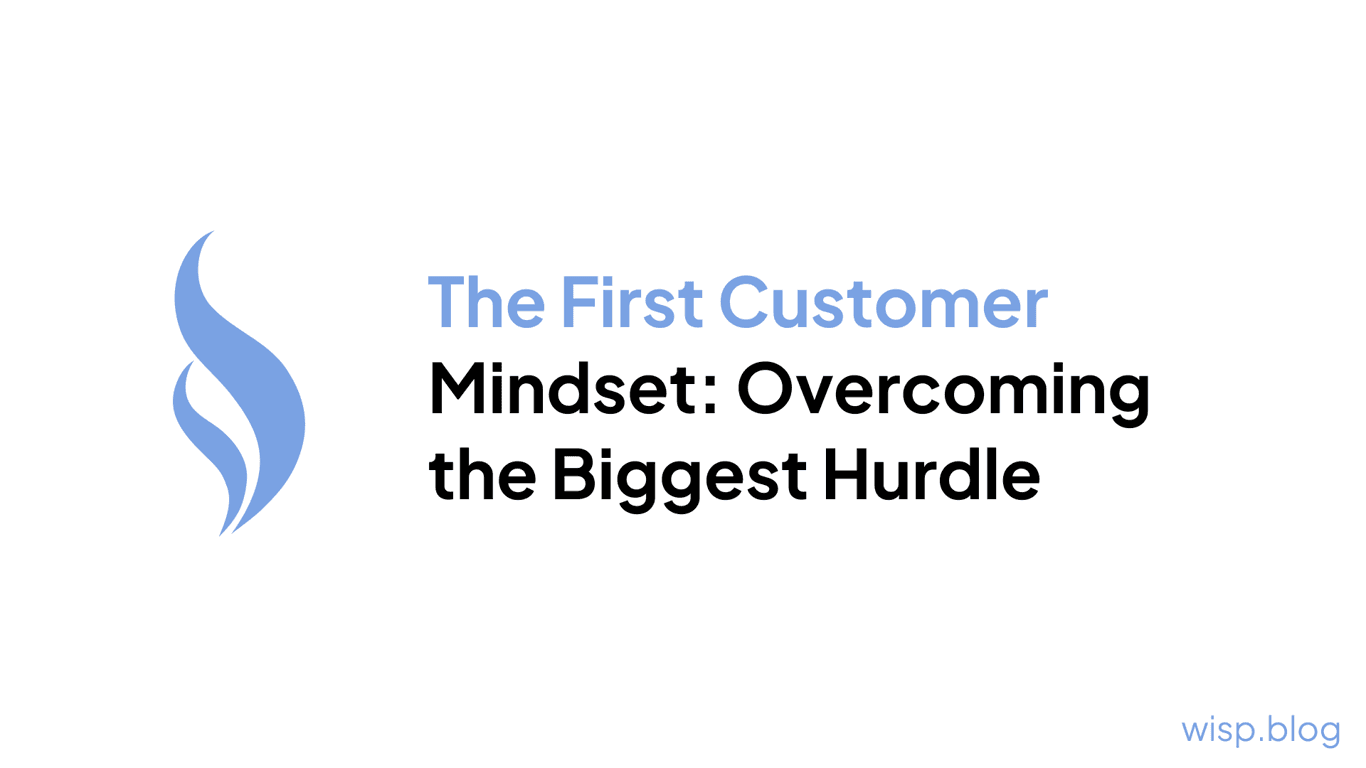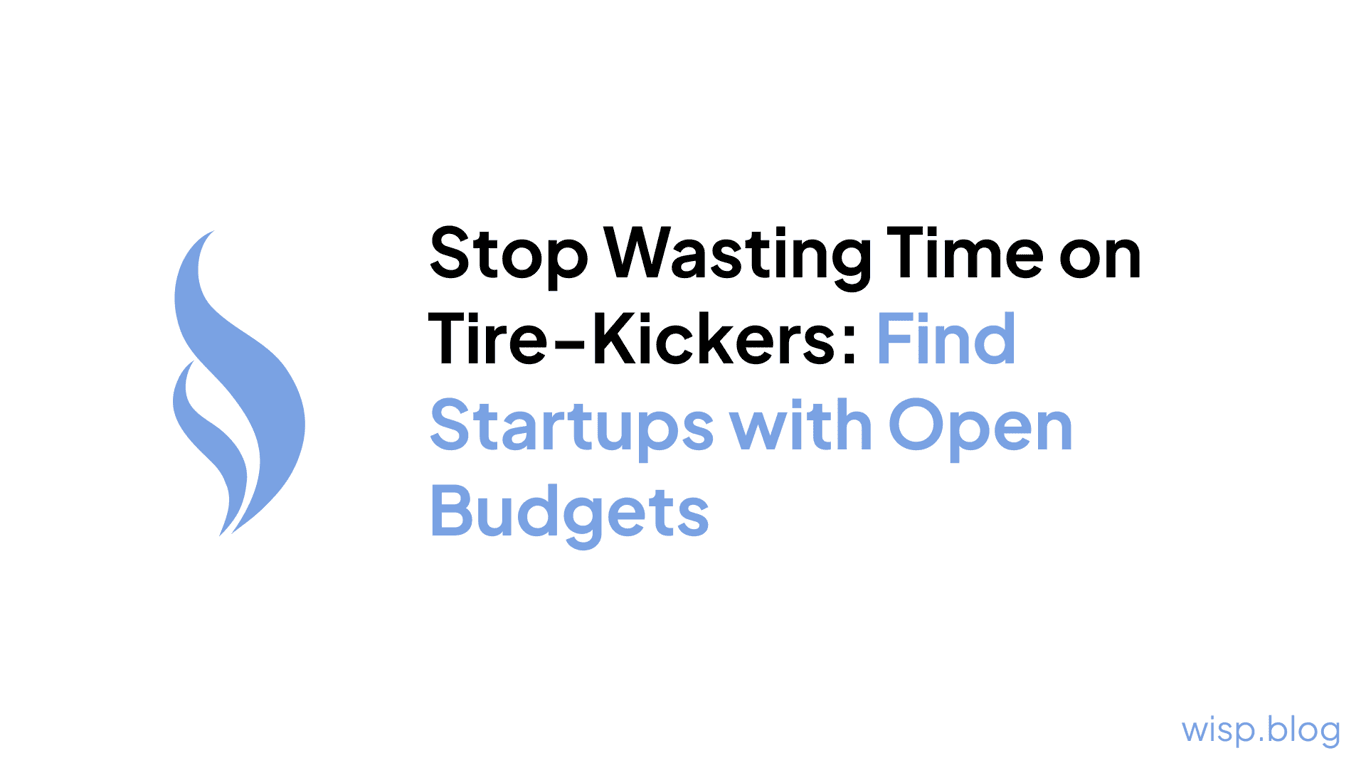
You've poured your heart into crafting the perfect sales pitch and offer, only for another prospect to ghost you after initially expressing interest. The disappointment and rejection sting deeply. You start questioning everything - your services, your pricing, your entire business model. What's wrong? Why won't these prospects commit after all your hard work?
The harsh reality is that not every prospect is meant to become your customer, no matter how bulletproof your offer may be. There will always be a portion that falls through the cracks for reasons entirely outside your control.
The rejections pile up, shaking your confidence and making you question your entire journey as an entrepreneur. With each "No", you can't help but take it personally. It feels like a harsh judgment on the value you have to offer the world.
But what if I told you that losing some prospects is actually a GOOD thing? That it's not only normal for most businesses, but is a signal that you're doing many things right?
When you start repelling the "wrong" customers who won't appreciate or compensate you fairly, it means you're successfully separating from the bargain hunters and tire-kickers. You're avoiding being trapped in a race to the bottom on price.
Reasons Why Prospects Won't Buy
1. They Don't Have the Money/Budget
No matter how impressive your offer or persuasive your sales pitch, some prospects simply won't have the available funds or budget allocated. Their interest is sincere, but their finances are a roadblock they can't overcome.
You could be offering the perfect solution to their biggest headaches and desires. But if they don't have the money, they don't have the money. It doesn't matter how much they may want what you're selling.
2. They Aren't the Real Decision Maker
You could be pitching the CEO directly, but if they need approval from a Board of Directors, partners, or someone else holding the purse strings, you're dead in the water. Many buyers don't actually have the final sign-off authority they pretend to have.
No matter how enthusiastic your champion is, if they can't get the real decision makers on board, it's a no-go. You'll be stuck endlessly chasing buy-in from the people who truly control the budget.
3. They Prioritize Cheap Over Value
For some prospects, pricing will always be the biggest factor in their decision process. No amount of value-selling or ROI calculations will ever convince them to stop chasing the lowest bidder possible.
They see your particular offer as more of an undifferentiated commodity rather than a premium solution tailored to their needs. If you aren't the cheapest, you'll lose every time.
4. They Have Unrealistic Expectations
Some prospects want the world for pennies on the dollar. They have unrealistic expectations around scope, timelines, or what constitutes a "fair" price and level of service.
No matter how you try to reshape their mindset, their vision of the engagement will never align with the reality of what it actually takes to deliver. Their expectations are misguided from the start.
5. They Are Chronic Time-Wasters
Unfortunately, a segment of prospects are just professional opportunity-seekers who love to kick tires but never actually buy anything. For them, the journey of evaluating new solutions is the destination.
They'll entertain multiple sales calls, request endless proposals, and ask every question under the sun. But at the end of the day, they don't have any real intent to make a purchase decision. Selling to them is a perpetual carrot being dangled.
6. Your Offer Wasn't Convincing Enough
In some cases, the reason for not buying lies with you and your sales approach. Your messaging, value proposition, or offer simply wasn't compelling enough to overcome their inertia, skepticism and objections.
Perhaps you didn't do an adequate job understanding their specific pains and framing your solution accordingly. Or maybe your pricing, packaging or guarantee wasn't positioned powerfully enough.
7. The Timing Was Off
Even if your offer truly is the perfect fit, the prospect's particular circumstances and timing simply weren't aligned to be able to pull the trigger yet. Their interest was legitimate, but their urgency was lacking.
Whether it was due to an upcoming initiative being delayed, turnover in their team, or other priorities taking precedence, they weren't in the ideal "Buying Window" quite yet. Reaching out again later may re-engage them.
While you can't control all of these reasons why prospects won't buy, you can implement strategies to filter and qualify better upfront:
Qualify prospects early on fit, budget, urgency, decision authority and more. Don't waste time on unqualified prospects.
Charge premium prices with confidence - the right customers will value your expertise accordingly.
Nurture prospects who "No" now - their circumstances may change later when they're better positioned to buy.
Focus your energy on the 20% of prospects showing strong buying signals instead of the 80% unlikely to convert.
Celebrate lost prospects - it means your positioning and messaging is successfully repelling those who aren't a fit.
Build a portfolio/blog - produce content to show how you can add value, when the time is ready, the client will reach out again.
The most successful businesses don't try to appeal to everyone. They have the courage to repel those who aren't a fit, focusing solely on serving the right customers extremely well.
When you start losing some prospects, it's actually an indicator that you're doing many things right. It means your offers, positioning, and sales process are attracting your true audience while filtering out the rest. Losing prospects just comes with the territory of effective marketing - embrace it.


